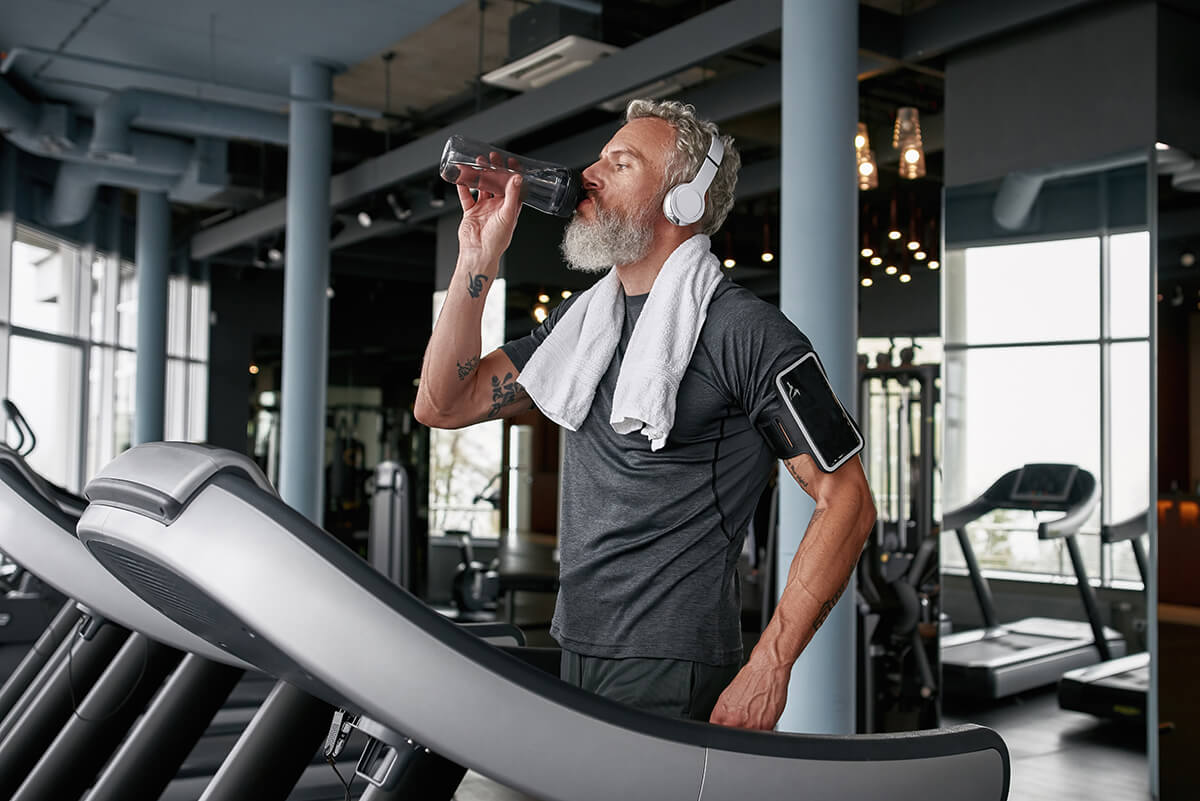
When you think about what’s important for a successful workout, hydration might not be the first thing that comes to mind. But the truth is, it plays a critical role in your lifting performance, recovery, and overall muscle health. Whether you’re focused on strength, endurance, or muscle growth, staying hydrated is essential to making the most out of your training.
- Muscle Function and Performance
Water makes up a huge portion of your muscles—about 75%. When you’re dehydrated, your muscles are more likely to fatigue quickly, which leads to a drop in strength, power, and endurance. Hydration helps transport essential nutrients to your muscle cells, ensuring they stay in peak condition during your lifts.
When you lift weights, your muscles rely on glucose and oxygen to fuel movement. Dehydration can interfere with the delivery of these nutrients, leading to muscle cramps and decreased performance. Staying hydrated before, during, and after your workout ensures your muscles are getting what they need to perform at their best.
- Temperature Regulation
Weightlifting generates heat, and your body needs to stay cool to perform well. Hydration is key to regulating your body temperature during a workout. Proper hydration supports your body’s ability to sweat, which is how it cools itself down. If you’re dehydrated, your body struggles to sweat efficiently, putting you at risk of overheating.
Inadequate hydration can also lead to an inability to sweat properly, which further increases the chance of heat-related stress. By staying hydrated, you help your body maintain a comfortable temperature, allowing you to keep pushing through intense lifting sessions.
- Improved Muscle Recovery
Weightlifting causes microtears in your muscle fibers, and staying hydrated helps your muscles recover quickly. When you’re hydrated, your body can flush out waste products like lactic acid, which build up during exercise. Proper hydration also ensures that your muscles receive the nutrients and oxygen they need for repair and growth.
After a tough session, your muscles need replenishment. Water is key to transporting amino acids to muscle tissue, aiding in repair and growth. Staying hydrated also helps reduce soreness, allowing you to feel less stiff and recover faster.
- Joint Health
Lifting places a lot of stress on your joints, and hydration helps keep them in good shape. Water is essential for lubricating the joints, ensuring smoother, less painful movement during your lifts. Proper hydration helps maintain synovial fluid in your joints, which acts as a cushion and helps prevent damage, reducing the risk of injury during intense lifting sessions.
- Prevents Fatigue and Enhances Focus
When you’re dehydrated, it becomes harder to concentrate on your form, technique, and intensity, which can lead to a drop in performance. Fatigue sets in faster, and you might struggle to complete your sets and reps. Hydration helps keep you energized, focused, and mentally sharp, so you can push through your workout with better results.
- Optimal Hormonal Function
Hydration also affects hormonal balance, including the release of hormones like testosterone and growth hormone, which are key for muscle growth and fat loss. Dehydration can interfere with these processes, slowing down your progress and making it harder to see the gains you’re working for.
Tips for Staying Hydrated
- Drink Water Before Your Workout: Make sure you start hydrated by drinking water throughout the day leading up to your training session. Aim for 16–20 ounces about 2 hours before your workout.
- Sip During Your Workout: Drink small amounts of water every 10–20 minutes during your lifting session to stay on top of hydration.
- Hydrate After Your Workout: Replenish the fluids you lost during your workout with water and electrolytes to help with recovery and prevent muscle cramps.
- Electrolytes Matter: For long or intense training sessions, consider adding electrolytes like sodium, potassium, and magnesium to your water to maintain fluid balance and prevent cramping.
Keeping hydration at the forefront of your fitness routine is crucial for improving your lifting performance and supporting muscle recovery. So, make water your workout partner—your body will thank you for it.
